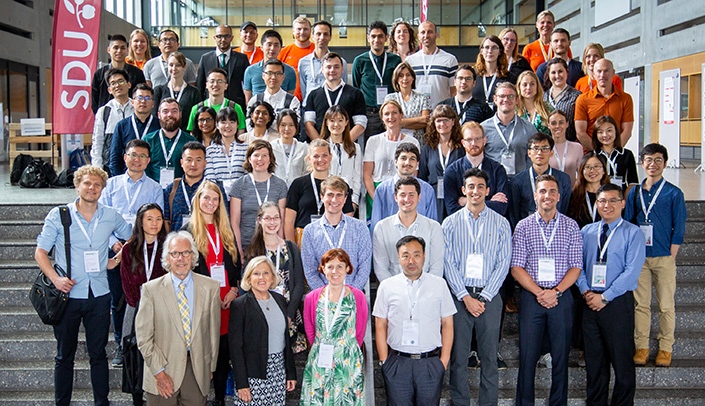In a global world getting smaller by the minute, one thing remains a constant — the game of life still revolves around personal relationships.
You can email back and forth hundreds of times, but there really is no substitute for meeting someone face-to-face.
For the past 15 years, it has been the personal relationships developed through the International Student Research Forum that have made the ISRF a resounding success.
Each year, the ISRF brings together top doctorate students from five different countries and universities and typically rotates between the five countries. Ten students are selected from each university.
Participating universities include: UNMC/University of Nebraska at Omaha; Griffith University, Australia; the University of Chinese Academy of Sciences; University of Southern Denmark; and Simon Fraser University, Canada.
Last month, the 10 students participating in this year’s ISRF for UNMC and UNO came together at a breakfast and shared their fondest memories from their summer excursion to the University of Southern Denmark in Odense, Denmark.
One of the students, Amanda Smith, said, “The experience of going to a foreign country gives me the itch to go back.”
Another student, Zijian Qin, talked about how his group of students won the $10 Challenge at this year’s ISRF.
The $10 Challenge put the students into groups — with no group having two students from the same university — to identify important public health challenges and to come up with and present ideas for impactful, low cost, innovative, and technically feasible solutions using existing technology only.
“Because it is about thinking in new and different ways and about working together in diverse disciplines, each of us had to get out of our comfort zone,” Qin said. “You needed to think globally and use your strengths to facilitate better team communication, so that the team can work collectively and effectively toward the same objective.”
Jayme Nekuda, Ph.D., associate director of human resources, talked about how she can literally see the students grow. “I’ve watched the student transformation from a cocoon into a beautiful butterfly.”
Dr. Nekuda and her husband, Keith Swarts, special assistant for international programs, have served as UNMC’s ISRF coordinators since the program began in 2005.
Swarts said Omaha — even though it doesn’t have an international airport — is a prime spot for the ISRF. Students attending the ISRF connect — no matter where the forum is held. Two of his favorite memories are watching the students line-dance at an Omaha dance hall and enjoying an Omaha Storm Chasers’ baseball game.
UNMC Chancellor Jeffrey P. Gold, M.D., called the ISRF “a life-changing experience” that helps students “gain perspective on how people think differently.”
He talked about how the ISRF builds what former Secretary of State Henry Kissinger called “people-to-people diplomacy.”
“This program underscores what makes diplomacy work is the relationship between people . . . it’s what knits the world together.”
